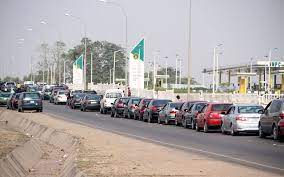By Isah Aliyu Chiroma
Let’s start by going back in time to the late 1950s, when Nigeria’s first crude oil was discovered. It was a new dawn, optimism was high, as Nigeria began to produce oil. This led to our nightmare and caused us to shift away from being farmers to being producers of oil. This was a significant risk that we made for our economy at the time, but it turned out to be the quickest and
easiest way to grow the economy.
One of the most notable instances of fuel scarcity occurred in 1996, under the rule of General Sani Abacha. Due to the nation’s refineries being inoperable, the only solution was to export crude oil to refineries abroad. A new era of importers, who lessen the nation to its whims and caprices, entered the scene with the abundance of our local refineries. Over the years, fuel prices have continued to rise. Each administration sets its own prices, some of which are periodically controlled. The price of petroleum has increased significantly during the General Yakubu Gowan regime till the present administration. Within those years, a number of factors have contributed to the ongoing fuel shortage we currently experience, including political unrest, widespread corruption, lack of transparency and accountability, social unrest, conflict, disregard for the rule of law and due process, the deterioration of institutions, and unequal wealth distribution. As a result, the nation did not reap the rewards of its prosperity and that dream we had at the beginning started fading away.
A sense of uncertainty pervaded the politics as a result of numerous contentious decisions made in the latter months of the Obasanjo administration. Some of these choices included raising the price of gasoline at the pump and selling crucial national resources like the refineries in Kaduna and Port Harcourt. When Yar’Adua administration came, he annulled the sale of the federal government’s 51% interest in the refineries in Kaduna and Port Harcourt to Transcorp. His administration also lowered the cost of gasoline from N75 to N70 per liter.
According to the Independent Petroleum Association of Nigeria (lPMAN), a scarcity of petroleum products and difficulties for marketers in obtaining foreign currency are to blame for the current fuel deficit. Over the years, fuel shortages frequently occurred before fuel prices rose. When you bring all this together, you will get to understand where the problem lies.
Nigeria has four refineries with a combined daily capacity of 445,000 barrels of crude oil: two in Port Harcourt, one in Warri, and one in Kaduna. Even though they don’t refine even one barrel of crude oil each day, the four refineries nonetheless have annual operating expenses. The dependence on imported petroleum products will be limited if efforts are made to ensure the efficiency of the regional refineries. But those refineries were abandoned and we keep spending huge amount of money to import those oil.
There is no longer any news about the terrible effects of the fuel shortage on the Nigerian populace. It is crucial for the operation of many different businesses as well as the social and economic advancement of the country. This can lead to social and economic instability, inflation, higher transportation expenses, and low economic progress. What is the way forward?
Our local refineries, which we have neglected for some years, are a key part of the solution to this problem. Due to the lack of those refineries, we won’t be able to make the best use of our resources as more oil is discovered in other states. We need those structures in place to utilize our resource and boost our economy. Over 26,700 filling stations exist across the country, 2,453 of which are members of the Major Oil Marketers Association of Nigeria (MOMAN), whereas the NNPC only operates 37 mega stations, all of which are found in state capitals. Next, about 24,226 locations are under the supervision of the Independent Petroleum Marketers’ Association of Nigeria.
This is yet another aspect that must be taken into account. Because there are only 37 mega stations operated by the NNPC, which is very few to meet the needs of the nation’s fuel consumption, the government price of a fuel can only be found there.
The government has made an effort to prevent gasoline shortages by repairing the local refineries, but the licenses granted to private investors have not yet produced any noticeable results. Dangote has promised to develop his refinery in order to solve this issue. After compiling information, we may be able to determine whether he can cover all or part of the gasoline consumption requirement. The government, on the other side, must make investments in the nearby refineries and reactivate the facilities.
What will be our fate if we cannot refine our crude oil or adjust to those technological shifts when the globe switches to electric vehicles? A long-term solution must be implemented because this problem needs to be addressed immediately.



